Hearts of Oak Podcast
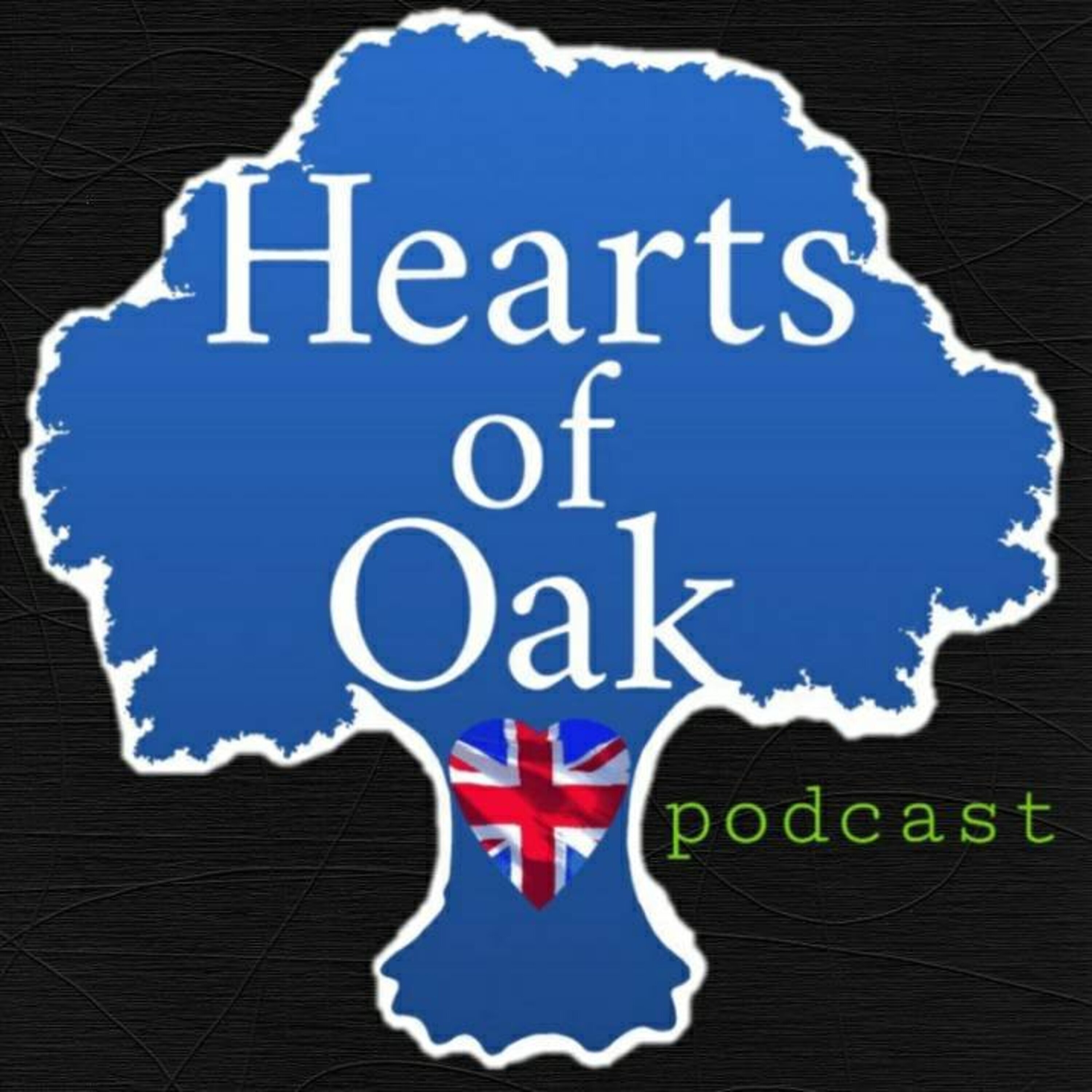
GUEST INTERVIEWS - Every Monday and Thursday - WEEKLY NEWS REVIEW - Every Weekend - Hearts of Oak is a Free Speech Alliance that bridges the transatlantic and cultural gap between the UK and the USA. Despite the this gap, values such as common sense, conviction and courage can transcend borders. For all our social media , video , livestream platforms and more https://heartsofoak.org/connect/
Episodes
Episodes
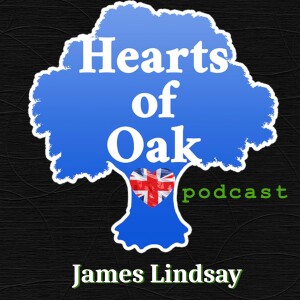


Thursday May 08, 2025
James Lindsay - Cultural Narratives and Power: The Rise of the Woke Right
Thursday May 08, 2025
Thursday May 08, 2025
In this episode, James Lindsay explores the notion of the "woke right" and its impact on political discourse. He characterizes the woke right as a cult-like phenomenon that adopts leftist methodologies while aligning with right-wing politics, emphasizing that both the woke left and woke right share similar dynamics but channel them in opposing directions. Lindsay connects the rise of the woke right to historical authoritarian movements, drawing parallels between fascism and modern conservatism's reactions to perceived Marxist threats. He discusses America's unique identity as a nation defined by ideas rather than ethnicity, advocating for principles grounded in shared values. The conversation also addresses criticisms of Israel, differentiating legitimate critiques from anti-Semitic sentiments. Throughout, Lindsay highlights the complexities of individualism and collective identity, urging a nuanced understanding of contemporary ideologies and societal norms.
Connect with James...𝕏: https://twitter.com/ConceptualJamesGETTR: https://gettr.com/user/conceptualjamesAmazon: https://www.amazon.co.uk/James-Lindsay/e/B009BBX7BI/ref=aufs_dp_fta_dsk
Connect with Hearts of Oak...𝕏 x.com/HeartsofOakUKWEBSITE heartsofoak.org/PODCASTS heartsofoak.podbean.com/SOCIAL MEDIA heartsofoak.org/connect/SHOP heartsofoak.org/shop/
*Special thanks to Bosch Fawstin for recording our intro/outro on this podcast.
Check out his art theboschfawstinstore.blogspot.com and follow him on 𝕏 x.com/TheBoschFawstin
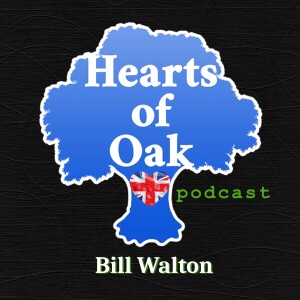


Monday May 05, 2025
Monday May 05, 2025
In this episode, I chat with Bill Walton about U.S. trade policy and tariffs, focusing on Trump’s retaliatory measures against countries like China and their impact on American manufacturing. We discuss market volatility, the need for sustainable economic practices, and the implications of the dollar's strength on trade. Bill emphasizes the importance of a balanced energy policy and explores how companies like NVIDIA are responding to global supply chain challenges. We conclude with a discussion on the cultural implications of economic policies, advocating for merit-based systems to strengthen both the economy and national identity.
Connect with Bill Walton
The Bill Walton Show | Money Culture PowerThe Bill Walton Show | SubstackThe Bill Walton Show Podcast Series – Apple PodcastsThe Bill Walton Show - YouTube
Connect with Hearts of Oak...𝕏 x.com/HeartsofOakUKWEBSITE heartsofoak.org/PODCASTS heartsofoak.podbean.com/SOCIAL MEDIA heartsofoak.org/connect/SHOP heartsofoak.org/shop/
*Special thanks to Bosch Fawstin for recording our intro/outro on this podcast.
Check out his art theboschfawstinstore.blogspot.com and follow him on 𝕏 x.com/TheBoschFawstin
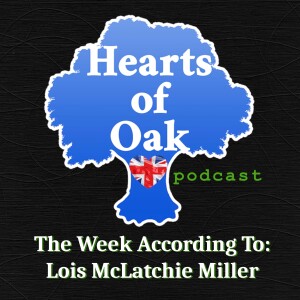


Monday May 05, 2025
The Week According To: Lois McLatchie Miller
Monday May 05, 2025
Monday May 05, 2025
In this episode, I speak with Louis McLatchie-Miller about critical political and societal issues affecting children's rights. We analyze the recent UK by-elections, reflecting on public discontent with traditional parties, and discuss transgender rights and treatments for minors, highlighting potential risks and the need for clarity around biological definitions of sex.
Lois McLatchie serves as a senior legal communications officer for ADF UK . She works with journalists and press representatives to advocate for fundamental freedoms in the “court of public opinion”, both in written pieces and through public speaking.Before beginning her current role, Lois was a legal analyst on ADF International’s UN Advocacy Team at the Human Rights Council in Geneva. There, she provided Member State representatives with key legal resources and amendatory language which promotes the inherent value of every person. She is an alumnus of ADF International’s Veritas Scholarship, under which she she completed training on on international law, communications and argumentation.Lois also holds an LLM Human Rights Law with distinction from the University of Kent, and an MA (Hons) International Relations from the University of St Andrews. During her studies, she participated in Areté Academy and Blackstone Legal Fellowship, where she completed extensive research on bioethical issues, including surrogacy.
Connect with Lois and ADF UK...𝕏 x.com/LoisMcLatchx.com/ADF_UKSUBSTACK tradical.substack.comWEBSITE adfinternational.org
Interview recorded 02.05.25
Connect with Hearts of Oak...𝕏 x.com/HeartsofOakUKWEBSITE heartsofoak.org/PODCASTS heartsofoak.podbean.com/SOCIAL MEDIA heartsofoak.org/connect/SHOP heartsofoak.org/shop/
*Special thanks to Bosch Fawstin for recording our intro/outro on this podcast.
Check out his art theboschfawstinstore.blogspot.com and follow him on 𝕏 x.com/TheBoschFawstin
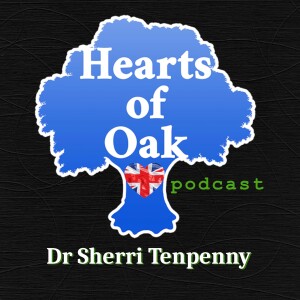


Thursday May 01, 2025
Thursday May 01, 2025
In this episode of Hearts of Oak, Dr. Sherri Tenpenny discusses her book "Zero Accountability," addressing the historical failures of vaccine policies and public health accountability. She highlights challenges faced by individuals injured by COVID vaccines, including inadequate compensation systems, and raises concerns about the implications of vaccinations on fertility. The conversation also touches on the ethical responsibilities of healthcare professionals and the integration of faith into discussions about health. The episode concludes with a call for transparency and reform in the pharmaceutical industry.
Connect with SherriThe doctor who speaks out about vaccines. Websites: drtenpenny.com and http://tenpennyecp.com and http://tenpennyimc.com
𝕏 Dr Sherri Tenpenny (@BusyDrT) / X
Interview Recorded 30.05.25
Connect with Hearts of Oak...𝕏 x.com/HeartsofOakUKWEBSITE heartsofoak.org/PODCASTS heartsofoak.podbean.com/SOCIAL MEDIA heartsofoak.org/connect/SHOP heartsofoak.org/shop/
*Special thanks to Bosch Fawstin for recording our intro/outro on this podcast.
Check out his art theboschfawstinstore.blogspot.com and follow him on 𝕏 x.com/TheBoschFawstin
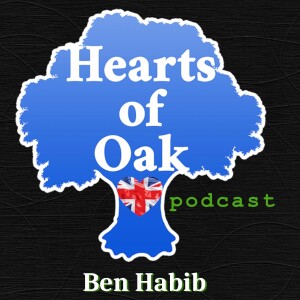


Monday Apr 28, 2025
Monday Apr 28, 2025
In this interview, Ben Habib discusses the current political environment in the UK, particularly critiquing Nigel Farage's potential rise to power. He expresses concerns about Farage's leadership and ideological lack, emphasizing the need for a true leader who can unify a capable team. Ben highlights the fallout within Reform UK following Rupert Lowe's departure and critiques the party's moral integrity, arguing against Farage's significant influence.He shares insights on his new initiatives, including the Great British Pact and the Integrity Party, which aims to uphold pro-British values and cultural integrity. Addressing cultural tensions, Ben argues for a revival of Christian roots in British identity amidst shifting societal values. The conversation concludes with a call to action for public support of the Integrity Party as a means to foster a more coherent nationalist agenda and restore national pride in the face of contemporary challenges.
Connect with Ben HabibWEBSITE Home - Great British PAC
𝕏 (1) Ben Habib (@benhabib6) / X (1) Great British PAC 🇬🇧 (@GreatBritishPAC) / X
Interview Recorded 25.04.25
Connect with Hearts of Oak...𝕏 x.com/HeartsofOakUKWEBSITE heartsofoak.org/PODCASTS heartsofoak.podbean.com/SOCIAL MEDIA heartsofoak.org/connect/SHOP heartsofoak.org/shop/
*Special thanks to Bosch Fawstin for recording our intro/outro on this podcast.
Check out his art theboschfawstinstore.blogspot.com and follow him on 𝕏 x.com/TheBoschFawstin
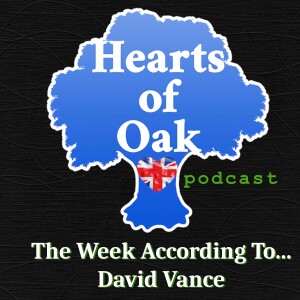


Saturday Apr 26, 2025
The Week According To. . . David Vance
Saturday Apr 26, 2025
Saturday Apr 26, 2025
In this episode of Hearts of Oak, host Peter and guest David Vance delve into UK political issues, focusing on Nigel Farage's deportation minister proposal and its inconsistencies. Vance critiques the Reform party and discusses the implications of the Supreme Court’s ruling on gender identity, advocating for clearer distinctions between sex and gender. The conversation also touches on international affairs, including Ukraine, the UK’s military readiness, health issues related to gastrointestinal illnesses, and proposed climate interventions. Vance's insights are marked by humor and critical analysis of contemporary political dynamics.
Interview: 25.04.25
Connect with David...WEBSITE davidvance.net𝕏 x.com/DVATWSUBSTACK thedavidvance.substack.comPODCAST vancedavidatw.podbean.com
Connect with Hearts of Oak...𝕏 x.com/HeartsofOakUKWEBSITE heartsofoak.org/PODCASTS heartsofoak.podbean.com/SOCIAL MEDIA heartsofoak.org/connect/SHOP heartsofoak.org/shop/
*Special thanks to Bosch Fawstin for recording our intro/outro on this podcast.
Check out his art theboschfawstinstore.blogspot.com and follow him on 𝕏 x.com/TheBoschFawstin
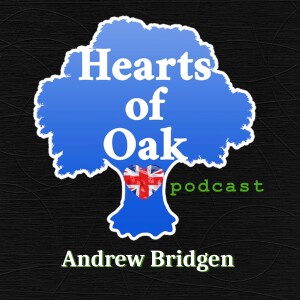


Thursday Apr 24, 2025
Thursday Apr 24, 2025
In this episode, I engage with Andrew Bridgen, a key UK political figure. We discuss his parliamentary campaign focused on immigration enforcement, child protection from radical ideologies, and the challenges posed by the World Health Organization. Bridgen shares insights on his legal battles with Matt Hancock over vaccine safety transparency and underscores the need for data-driven policies devoid of corporate influence.
He highlights systemic resistance to discussing vaccine-related issues and critiques global health regulations that threaten national sovereignty. Bridgen warns against the erosion of democratic processes and emphasizes the importance of accountability in public policy, preparing listeners for his upcoming speaking engagement on these critical matters.
Interview Recorded: 23.04.25
Connect with AndrewX/TWITTER https://x.com/ABridgenWebsite https://abridgen.uk/
Connect with Hearts of Oak...𝕏 x.com/HeartsofOakUKWEBSITE heartsofoak.org/PODCASTS heartsofoak.podbean.com/SOCIAL MEDIA heartsofoak.org/connect/SHOP heartsofoak.org/shop/
*Special thanks to Bosch Fawstin for recording our intro/outro on this podcast.
Check out his art theboschfawstinstore.blogspot.com and follow him on 𝕏 x.com/TheBoschFawstin
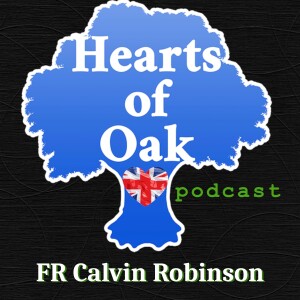


Monday Apr 21, 2025
Monday Apr 21, 2025
In this episode, I am joined by Calvin Robinson, an ardent advocate for Christian values, as we explore the significance of Easter and its foundational truths. We reflect on the journey of Jesus Christ, from Palm Sunday to his resurrection, and discuss the cultural shift away from traditional Christianity. Calvin emphasizes the importance of upholding truth in a media landscape that often avoids difficult topics and critiques the inclusion of Islam in Easter messages. We examine the historical roots of Christianity in Judaism and the need for clarity in expressing faith. The conversation addresses the decline of moral leadership within the Church of England and the urgency of advocating for the sanctity of life, culminating in a call to action for Christians to boldly reclaim their voice amidst today's challenges.
Interview Recorded: 20.04.25
Connect with Calvin...X/TWITTER x.com/calvinrobinsonSUBSTACK calvinrobinson.com/FOX & FATHER x.com/media_reclaim youtube.com/c/ReclaimTheMedia_
Connect with Hearts of Oak...𝕏 x.com/HeartsofOakUKWEBSITE heartsofoak.org/PODCASTS heartsofoak.podbean.com/SOCIAL MEDIA heartsofoak.org/connect/SHOP heartsofoak.org/shop/
*Special thanks to Bosch Fawstin for recording our intro/outro on this podcast.
Check out his art theboschfawstinstore.blogspot.com and follow him on 𝕏 x.com/TheBoschFawstin

